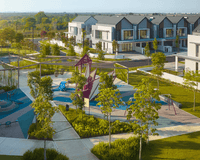When it comes to housing development, sustainability is a key consideration. As the world becomes more conscious of the environmental impact of our actions, it is crucial to prioritize sustainable practices in all aspects of life, including housing. In this expert's guide, we will explore the various strategies and techniques that can be employed to achieve sustainable housing development.
What is sustainable housing development?
Sustainable housing development refers to the creation of residential buildings that are designed, constructed, and operated in an environmentally friendly and resource-efficient manner. It aims to minimize the negative impact on the environment while maximizing the health and well-being of the occupants.
Energy-efficient design
One of the fundamental principles of sustainable housing development is energy efficiency. By incorporating energy-efficient design features, such as proper insulation, high-performance windows, and efficient heating, ventilation, and air conditioning (HVAC) systems, developers can significantly reduce the energy consumption of residential buildings. This not only helps to mitigate climate change but also lowers utility bills for the occupants.
Renewable energy sources
Another crucial aspect of sustainable housing development is the integration of renewable energy sources. Solar panels, wind turbines, and geothermal systems can be installed to generate clean and renewable energy on-site. By harnessing these natural resources, housing developments can reduce their reliance on fossil fuels and contribute to a greener future.
Water conservation
Water scarcity is a growing concern in many parts of the world. Sustainable housing development addresses this issue by implementing water conservation measures. Low-flow fixtures, rainwater harvesting systems, and efficient irrigation methods can all help to minimize water consumption in residential buildings. Additionally, the use of native plants in landscaping can reduce the need for excessive watering.
Waste management
Proper waste management is essential for sustainable housing development. Recycling programs, composting facilities, and the use of recycled materials in construction can all contribute to reducing waste and minimizing the environmental impact of housing projects. Additionally, developers can encourage residents to adopt sustainable waste management practices, such as recycling and composting.
Community engagement
Creating sustainable housing developments goes beyond the physical aspects of construction. It also involves fostering a sense of community and promoting sustainable living among the residents. Community gardens, shared spaces for social interaction, and educational programs on sustainable practices can all contribute to building a sustainable and vibrant community.
The benefits of sustainable housing development
By prioritizing sustainable practices in housing development, developers can reap numerous benefits. These include reduced energy and water costs, improved indoor air quality, enhanced occupant health and well-being, increased property value, and a positive contribution to the environment. Sustainable housing developments not only benefit the current generation but also pave the way for a more sustainable future for generations to come.
In conclusion, achieving sustainable housing development requires a holistic approach that encompasses energy efficiency, renewable energy sources, water conservation, waste management, and community engagement. By incorporating these strategies, developers can create residential buildings that are not only environmentally friendly but also provide a high quality of life for the occupants. Together, we can build a sustainable future, one housing development at a time.









